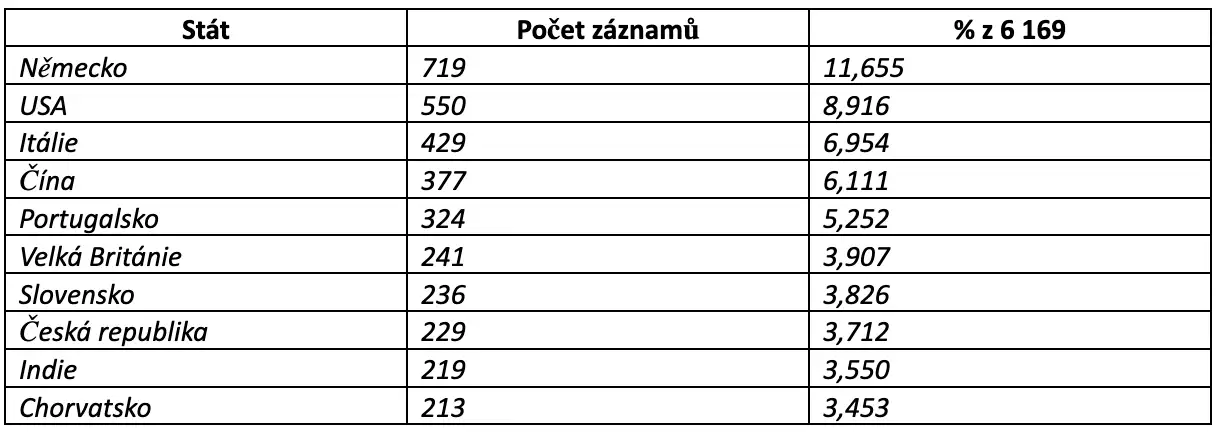Commentary by Ondřej Machek: Conference Publishing
Over the past decade, the Czech research community has been encouraged to publish not only in academic journals but also in conference proceedings. This trend was reinforced by the research evaluation methodology known as “kafemlejnek” (the coffee grinder).
The methodology defined the output type “D” as follows: “An article in the proceedings presents original research results conducted by the author or a team of which the author was a member. The article follows the usual structure of a scientific paper and cites sources in the standard manner (not just an abstract) and is published in the proceedings.”
A logical consequence of the kafemlejnek system was the increase in proceedings publications with Czech affiliations and a boom in local conferences. This practice seemingly persists to this day, as evidenced by data available on Web of Science. Specifically, in the last three years, Czech authors in conferences related to business, management, economics, or business finance ranked seventh globally in the number of “proceedings papers”, just behind Slovakia and one place ahead of India. While Germany, the USA, and China lead the rankings, the Czech Republic’s position is surprisingly high relative to its population. Does this mean we should celebrate being a world leader in conference publishing?
Table 1: Number of Proceedings Papers (2022–2024) in Web of Science CPCI-SSH (Business, Management, Economics, or Business Finance)

(DOP=(2022-01-01/2024-12-31)) NOT DT=(Article) AND DT=(Proceedings Paper) AND WC=(Business OR Management OR Economics OR Business Finance)
Publishing in conference proceedings has several specific characteristics. The peer review process is often single-round—there is simply no time for multiple revisions (e.g., first major revision, second major revision, minor revision) since the conference date is fixed. As a result, the review process is not and cannot be as rigorous as in high-quality journals, where a single round of strict revisions can take half a year or more—something infeasible for conferences. Consequently, proceedings papers tend to be shorter and less developed, as 6–8 pages are insufficient to present deep theoretical arguments and detailed methodology, results, and discussion.
Moreover, once a full-text paper is published in proceedings, its subsequent publication in a reputable journal is virtually impossible. Why? It would constitute duplicate publication, which is considered unethical in academia. Additionally, it compromises the anonymity of the double-blind review process, as the text is already publicly available, allowing reviewers to easily identify the authors. The result? Many proceedings papers remain largely unread, rarely discovered or cited.
Let’s look at the world’s leading conferences in management: Academy of Management (AOM), European Academy of Management (EURAM), Rencontres de St-Gall or Babson College Entrepreneurship Research Conference. What do these conferences have in common? Participation is not only highly competitive (Rencontres de St-Gall is by invitation only), but more importantly, they do not publish public proceedings. The true purpose of academic conferences is not to publish but to discuss research. Authors present their ideas, receive feedback, and improve their work for later publication in top journals. Conferences also facilitate networking—scientists attending prestigious conferences gain valuable feedback and potential collaboration opportunities with leading global academics. From this perspective, investing in high-quality conferences is an expensive but worthwhile long-term strategy for academic institutions.
Returning to the definition of “D” output under the kafemlejnek methodology, the message is clear: no abstracts, no posters, no presentations—only a published proceedings paper counts. However, this requirement distorted the true purpose of scientific conferences, turning them from discussion platforms into target publication venues for many Czech academics. This shift led to an undesirable state of affairs that needs to be addressed.
How to move forward? First and foremost, it is essential to stop considering conference papers published in Web of Science/Scopus proceedings as something that advances Czech science—because they do not. Between 2022 and 2024, the Prague University of Economics and Business contributed 31 authorships to the previously mentioned publication output, largely due to hosting the International Days of Statistics and Economics conference. The university acknowledges this issue and has therefore stopped considering “indexed” conferences in habilitation and professorial appointment procedures.
The Faculty of Business Administration at VŠE has decided to cancel its Innovation Management, Entrepreneurship and Sustainability conference, which was traditionally indexed in Web of Science, and has generally stopped rewarding outputs from conferences indexed in Web of Science/Scopus. It now only covers travel expenses for prestigious conferences (such as the Academy of Management), which typically do not publish full-text papers. It seems that the investment is paying off: while the number of conference papers in Web of Science is decreasing, participation in „non-indexed“ but prestigious conferences is increasing. Moreover, the Faculty of Business Administration has been more successful in publishing in top-tier journals, such as the Journal of Management Studies, Journal of Consumer Research, and Family Business Review.
Author: Ondřej Machek
Ondřej Machek is a professor at the Department of Strategy at the Faculty of Business Administration, Prague University of Economics and Business. He previously served as the head of the Faculty’s Science and Research Center, where he also co-founded the Center for Family Businesses. Currently, he is the chairman of the Academic Senate of the Faculty of Business Administration. His research and teaching focus on business economics, strategy, and quantitative methods in management. He pays special attention to family business, social capital issues, interpersonal conflicts, and corporate innovation.